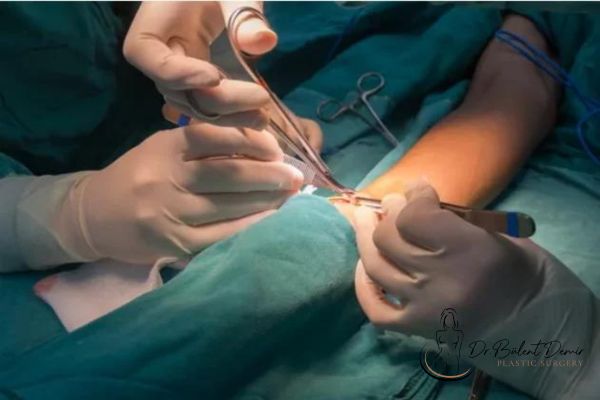What are the symptoms of postoperative infection?

In case of infection occurs, inflammation of the surgical intervention area and a number of problems throughout the body may occur. In case of infection occurs, the symptoms may be mild in some patients, while others may be severe.
How do you know if you have an infection after the survey?
- Excessive and increasing redness in the surgery area may be a sign of swelling infection.
- More severe pain than wound -induced pain suggests the possibility of infection after the operation.
- The fever of the patient with surgery is 38 and above is another symptom of infection.
- If there is inflammation, purulent, bloody white discharge, bad smell in surgical intervention tissues, this is a sign of postoperative infection.
- Postoperative patient is a harbinger of infection.
- The increase in the pulse of the patient also suggests the possibility of postoperative infection.
- Postoperative lung infection patients have difficulty in breathing, cough, respiratory problems.
- After surgery, nausea and vomiting may occur in the patient with gastrointestinal tract infection.
After any surgery, individuals who have such problems immediately consult a doctor without losing time. Early diagnosis and treatment. The patient's infection can be controlled. Serious complications are prevented.
If you see them in a postoperative surgical wound, consult a doctor
Although 4 days after the surgery, a doctor should be consulted without losing time when there are conditions such as heat increase in the wound tissue, intensified pain, crushed discharge, blackness skin tissue, loosening or displacement of stitches.
The first 4 days after surgery is normal to increase heat, redness, color change, pain, edema. These symptoms are the inflammation (inflammation) phase of wound healing.
The formation of the upper layer called the new epidermis on the surgery incision is completed 3 days after the procedure. This epidermis layer prevents bacterial organisms from entering the surgery wound. It protects the wound tissue against external trauma.
There are several simple but important measures that can be taken to protect against infection after surgery. Thanks to these measures, you can avoid infection after surgery. To prevent infection; You should pay attention to the good and hand hygiene of the wound tissue dressing.
The only cause of postoperative infection is not patients or relatives of patients. Infection may also occur if the surgical environment is not sterile.
Post -operation infection is a condition that adversely affects surgery success and the general health status of the patient. Follow the advice of your surgeon to prevent postoperative infection and take care of hand hygiene.
When you are discharged from hospital
It is vital that you contact your doctor or general practitioner immediately if there are any complications with your wound after you are discharged from hospital. Sometimes we may ask you to contact our aesthetic clinic in Antalya. Prompt and effective treatment of any infection is crucial to prevent its progression.
How long can you get an infection after an operation?
The risk of infection after an operation may extend to various time frames depending on various factors. Here is a casting:
Immediately after surgery (within 30 days):
2nd interim period (1 to 3 months):
Delayed or late start (more than 3 months):
Factors affecting the risk and timing of infections include the type of surgery, the presence of any foreign substance, the general health of the patient, the immune status and how well the postoperative surgical wound is considered. Therefore, although the highest risk is within the first 30 days, wakefulness and attention is required for a longer period of time in the presence of implants or other risk factors.
How does infection decrease after surgery?
After surgery, you can take the following precautions to reduce the risk of infection on your own:
- Wash your hands: Wash your hands with soap and water before and after touching your wound.
- Wound care: Keep your wound clean and dry as your doctor suggested. Strictly follow the wound maintenance instructions, change the dressings regularly.
- Hygiene: Take care of your personal hygiene; Take a regular bath, but protect your wound from water. Use clean and sterile materials.
- Regular use of antibiotics: Use the antibiotics given by your doctor as described exactly, do not leave before it ends.
- Activity restrictions Avoid heavily lifting and strenuous activities for your doctor's time. Pay attention to the rest time.
- Nutrition: Support healing by applying a balanced and nutritious nutrition. Strengthen the defense mechanism of your body by drinking plenty of water.
- Regular controls: Go regular checks at the intervals of your doctor. If you notice symptoms of infection such as redness, swelling, pain or discharge in your wound, consult your doctor immediately.
